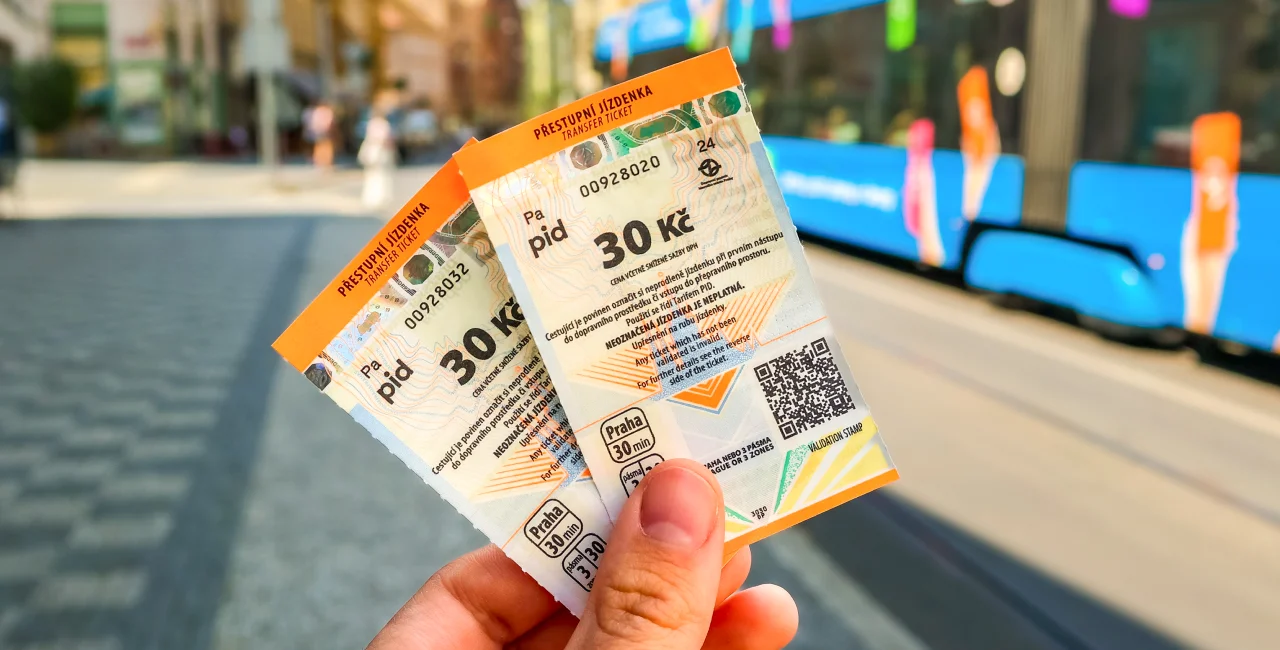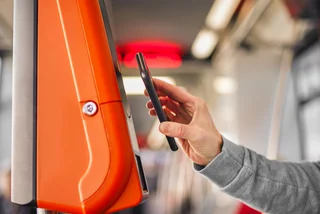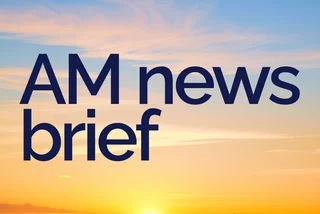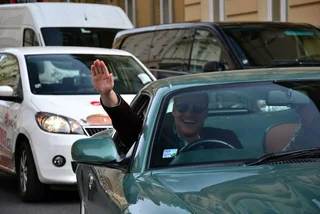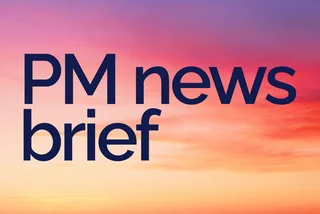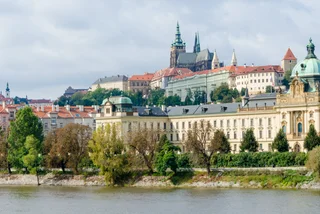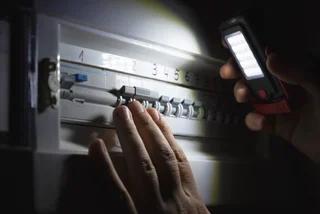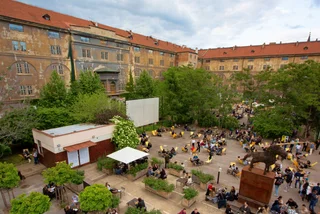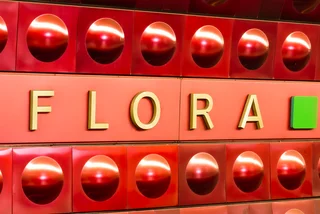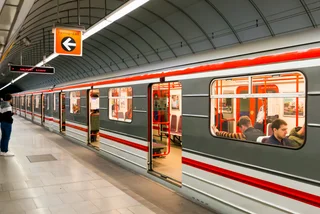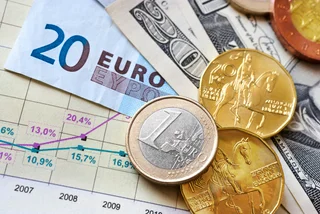Single tickets for Prague and Central Bohemia's public transport will become more expensive by over 30 percent starting January next year, city councilors approved this afternoon, citing rising operational costs. Fines for ticketless passengers will also jump from as soon as next month. Seasonal passes for Prague (such as monthly or annual tickets) will be unchanged.
The price rises
In Prague, a 30-minute ticket will increase from CZK 30 to CZK 39 when purchased in paper form, or CZK 36 via the Lítačka mobile application.
PARTNER ARTICLE
A 90-minute ticket will rise from CZK 40 to CZK 50, or CZK 46 through the app. SMS tickets will also increase, with 30-minute fares going from CZK 31 to CZK 42 and 90-minute fares from CZK 42 to CZK 55.
These new prices all apply to trams, metro, and bus services in the capital.
🎫 ALL PRICE RISES IN PRAGUE ALONE
- 30-minute ticket: CZK 30 to CZK 39 (CZK 36 on app)
- 90-minute ticket: CZK 40 to CZK 50 (CZK 46 on app)
- 24-hour ticket: CZK 120 to CZK 150 (CZK 140 on app)
- 72-hour ticket CZK 330 to CZK 350 (CZK 340 on app)
People in Central Bohemia will also pay more
For those traveling between Prague and Central Bohemia, the increases are similar. The 60-minute ticket will increase from CZK 40 to CZK 52, with the same CZK 4 discount if bought via the app. The 90-minute ticket will go up from CZK 50 to CZK 65, with a discounted app price of CZK 60.
Monthly, quarterly, and annual passes are all set to increase in Central Bohemia, too. For Zone 1, the monthly pass will go from CZK 395 to CZK 494, or CZK 474 through the Lítačka app. Quarterly fares will rise from CZK 1,000 to CZK 1,250, while annual passes increase from CZK 3,740 to CZK 4,675.
A Zone 1-3 pass will rise from CZK 920 to CZK 1,150 per month, and on an annual basis will rise by a substantial CZK 1,750: from CZK 8,730 to CZK 10,913.
A 50-percent jump in fines
Fines for traveling without a ticket will also rise. Starting Sept. 1 this year, passengers caught without a valid ticket will face a fine of CZK 1,500 if paid on the spot or within 15 days, up from CZK 1,000. Late payments will increase to CZK 2,000, then accrue interest.
‘Rising operational costs’ as the cause
Prague Finance Councilor Zdeněk Kovářík originally proposed the fare adjustments and incorporated them into a broader fare increase for the Prague Integrated Transport (PID) system, which connects the city with the Central Bohemian Region.
Kovářík defended his decision, saying that it is “only single-use tickets, which are mostly used by tourists,” that are changing.
Councilors cited rising costs and the dense Prague transport network as justification for the increase. Kovářík said, “Prague provides significantly more public transport services, we have a much denser network.” The city will also reduce fare zones from four to three for trips to surrounding areas.
Other politicians protest the increase
The Pirates, who oversee transport in Prague, opposed the price hike. Deputy Mayor for Transport Zdeněk Hřib said: “Representatives of Spolu and STAN [coalition parties] compared the price of fares with foreign examples, for example with Germany, but that this will be adequate when German salaries are in the Czech Republic.”
Opposition group Praha sobě also criticized the move. Chairman Adam Scheinherr said: “Thinking that a small increase in the price of single tickets will solve the problem is like putting a band-aid on an open fracture.”
Silver lining?
Economist Lukáš Kovanda argues that while Prague’s single-ride tickets will see steep increases, the annual coupon remains an outlier in Europe—at just CZK 3,650, it’s the second cheapest among EU capitals.
He notes that in real terms, the pass should cost more than double if adjusted for inflation and far more if service growth is factored in. In effect, higher single-ticket prices—often paid by tourists—help subsidize local commuters, keeping Prague’s yearly pass among the best bargains on the continent.













 Reading time: 3 minutes
Reading time: 3 minutes 